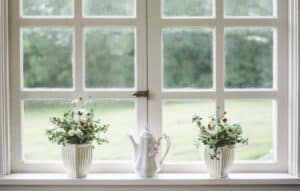AD | Featured
Delving into the wonderful world of DIY can be a great escape from the challenging times we are currently living in. Whether you’re upcycling a chest of drawers or making your very own bird feeder, engaging in such projects is proven to be a very effective way of stimulating the mind.
However, regardless of whether you’re a beginner or an avid enthusiast, it’s important to always be very careful when it comes to performing a DIY task. What’s more, there are certain DIY jobs that you should perhaps leave up to the professionals to tackle. So, before you get those tools out, have a read of the Case Farm’s guide to the DIY jobs you shouldn’t do yourself.
A guide to the DIY jobs you shouldn’t do yourself

Plumbing
There is no doubt that plumbing is a job that should always be left to the expertise of a professional plumber. After all, a plumbing job gone wrong can have catastrophic consequences – we’re talking boiler damage, burst pipes, flooding and other problems that are just too costly to take care of. If you’re feeling confident, you may decide to troubleshoot the problem at hand before consulting a plumber, but it’s important not to get too carried away with this.
Fitting a carpet
Fitting a carpet may seem like a straightforward task, but the job actually requires a tremendous amount of concentration and precision. As well as this, if one tiny thing goes wrong, you could end up with a carpet that doesn’t cover the whole area. This would then result in frayed edges and the appearance of a generally unattractive floor. With this in mind, it’s best to get a professional to lay down your carpet for you.
Tiling
Generally speaking, tiling is an easier task than fitting a carpet. Most DIYers can manage to tile a straight wall themselves, but caution is still required. Like fitting a carpet, you have to be very alert and patient when it comes to fitting tiles, as mistakes made will be very hard to fix. It would be wise to allow an experienced tiler to do the job for you.
Removing walls
We understand you may be confident with using big DIY tools such as a sledgehammer, and that you may want to relieve some stress by doing some good old bashing. However, you should never remove a wall yourself. Not only could this result in potential injuries, you could even risk causing your entire ceiling to collapse. If you do want to remove a wall, it’s best to address this plan with a contractor to confirm whether the action is really necessary and (more importantly) whether removing the wall will lead to structural damage.
Roof work
Speaking of structure, roof work is yet another thing that should always be left to the professionals. For instance, if you are experiencing a roof leak, it’s best to contact an expert who can fix the leak with the right roofing materials. It is also worth mentioning that working at such a great height can be extremely dangerous, and so it’s really in the best interest of your safety that you do not participate in any roof work yourself.
Loft conversions
When it comes to home refurbishments, loft conversions are becoming increasingly popular among homeowners. However, the reality is that converting your loft is certainly not an easy task; and an extra pair of hands from the right professional is essential to ensuring the utmost safety for you and your home.
The professional must first of all inspect your property to look out for any signs of asbestos. After this, the right kind of industry-approved construction work will need to be done to welcome the new addition to your home.
Rewiring
Finally, as common as electrical problems around the home may be, you should always get an electrician to sort these issues out for you. Sure, you may think you can fix that one faulty socket yourself, but that “one faulty socket” could be a sign of some further electrical damage from around your home.

Conclusion
It’s completely understandable that you’d want to save money when it comes to improving your home. You may also just want to find an excuse to pass the time by getting involved in some new and exciting projects. However, when it comes to protecting your home and also yourself, it is vital that you leave the jobs that we’ve mentioned here to the professionals.































